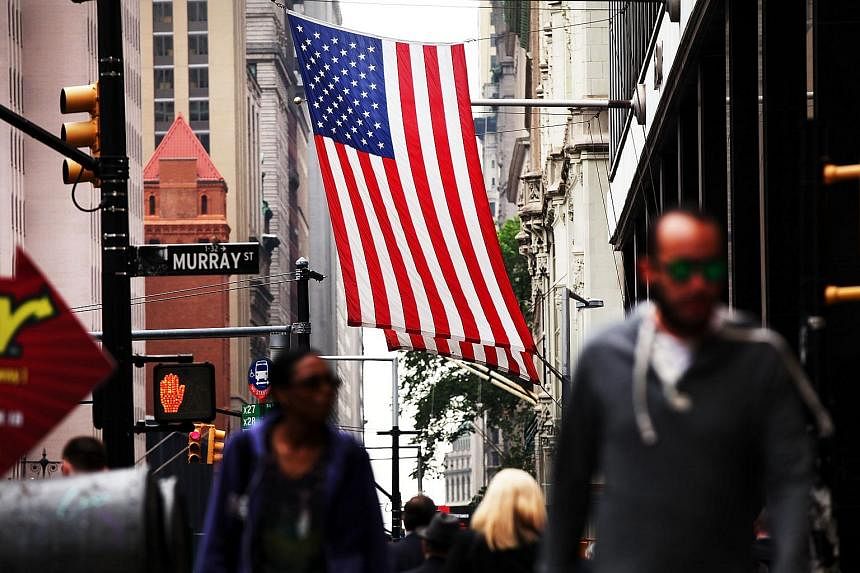WASHINGTON (BLOOMBERG) - A record number of help-wanted signs in April pushed job openings above hires for the first time ever, signaling wage pressures will be on the horizon.
The number of private-industry positions waiting to be filled jumped to 4.89 million, the most in data back to December 2000, from 4.63 million in March, the Labor Department reported Tuesday in Washington.
That outpaced the number of workers hired, which dropped to 4.67 million from 4.76 million. "It signals a tightening labour market," said Neil Dutta, head of US economics at Renaissance Macro Research LLC in New York. "That presumably means it's becoming more difficult for firms to fill those openings, which normally would argue for a pickup in wage growth."
As vacancies mount and unemployment wanes, employers will be pressured to boost wages in order to attract the most talented workers. The report contains some of the metrics Federal Reserve Chair Janet Yellen tracks to determine the health of the job market as policy makers discuss when to raise interest rates.
Stocks were little changed, after equities reached a two- month low. The Standard & Poor's 500 Index climbed less than 0.1 per cent to 2,080.38 at 3.25 pm in New York.
The 261,000 increase in private-industry openings for April was the largest since February 2013. Vacancies in health care jumped by 100,000 to 910,000, while retailers sought 543,000 employees, almost 30,000 more than in March.All openings, including government, rose by 267,000 to 5.38 million, also a record high in the Labor Department data.
The Job Openings and Labor Turnover Survey, or JOLTS, adds context to monthly payrolls figures by measuring dynamics such as resignations, help-wanted ads and the pace of hiring. Although it lags the Labour Department's other jobs data by a month, Ms Yellen follows the report as a measure of labour-market tightness and worker confidence. Some 2.7 million people quit their jobs in April, little changed from March, Tuesday's report showed.
The quits rate, which was 2 per cent when the recession started at the end of 2007, fell to 1.9 per cent in April from 2 per cent in March."The measures of the strong economy are pointing in the same direction," Labour Secretary Tom Perez said in a June 5 phone interview. "People don't quit unless they think they're going to get a better job."
The hiring rate - the number of people who got new jobs divided by the number who worked or were paid - fell to 3.5 per cent in April from 3.6 per cent. Hires decreased to 5.01 million from 5.09 million, according to Tuesday's figures.

